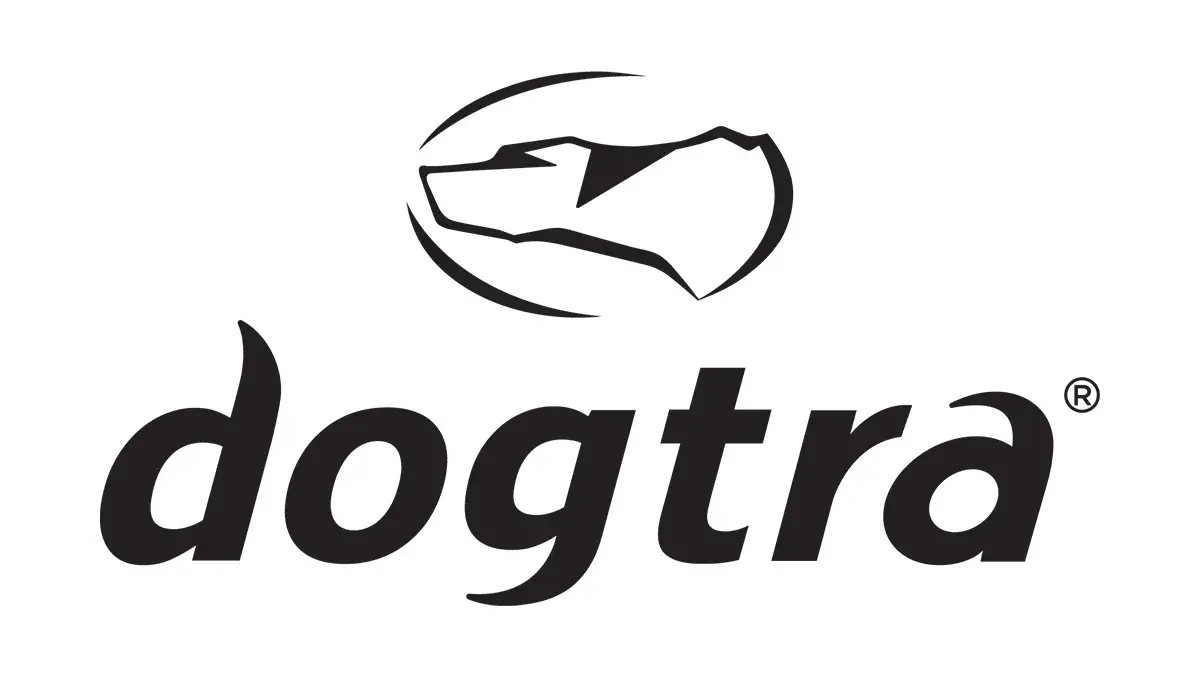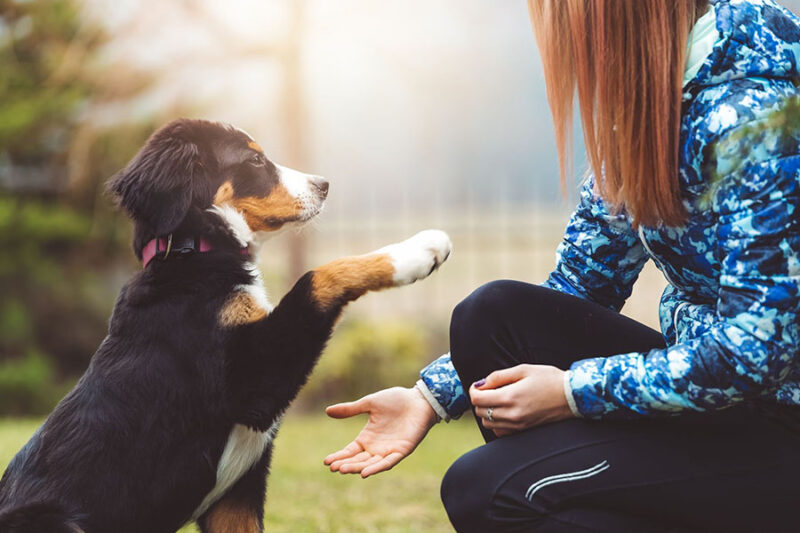
Did you know that a well-trained dog exhibits fewer behavioral problems and enjoys a happier life? Whether you’ve just welcomed a spirited puppy or a serene older dog into your home, embarking on a training journey can turn daily life into a joyful and harmonious adventure. The secret lies in timely guidance and dog problem-solving training, which are essential to building a bond filled with mutual respect and understanding. Let’s explore how to foster an ever-flourishing companionship with your furry friend.
Tackling Behavioral Issues Head-On
Addressing behavioral issues in dogs, such as excessive barking or furniture chewing, is a prevalent challenge many owners face. While these issues might seem overwhelming initially, effective problem-solving techniques can help you manage them successfully. Understanding your dog’s unique personality and needs is the first step in preventing minor issues from escalating. Here are some strategies to tackle behavioral issues effectively:
- Understanding the Root Cause: Identifying why your dog is acting out is the first step towards finding a solution.
- Personalized Training: Tailoring training to suit your dog’s personality and needs.
- Positive Reinforcement: Encouraging good behavior through rewards and praise
Embrace a Guided Approach to Problem-Solving
Our problem-solving lessons at The Dog Wizard offer a structured approach, assisting owners in effectively identifying and tackling a range of behavioral issues in dogs. This training process facilitates a more profound understanding between the owner and the dog, establishing a foundation built on mutual respect and trust. This method will solve existing issues and prevent potential problems, enhancing the joy of sharing your life with a loyal canine companion.
Establish a Safe Haven through Crate Training
Crate training is a priceless tool for all dog owners, creating a safe personal haven where dogs can relax, enjoy meals, or unwind. It aligns with a dog’s instinct to seek safety in an enclosed area. Combining crate training classes with leash training ensures safety and comfort during walks. Contact us through our form for personalized advice on crate training.
Uncover Your Dog’s Unique Personality
Effective problem-solving involves delving deep into your dog’s personality and instincts. Dogs, much like humans, have their quirks and traits. Spending time with your dog helps you grasp what captures your dog’s attention, setting the stage for rewarding training interventions. Watch how your furry friend behaves in different situations to understand their personality comprehensively.
Spot Early Signs of Problem Behaviors
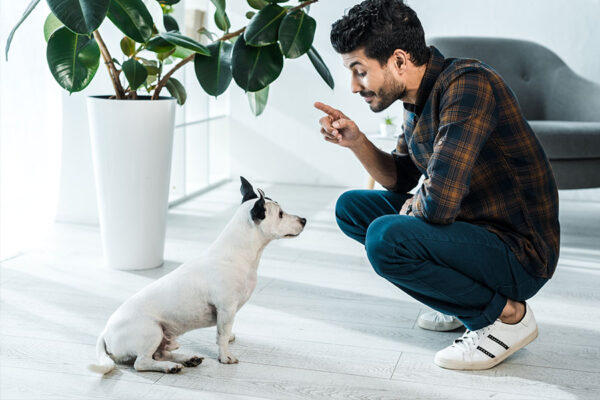
Being proactive in recognizing the early signs of problem behaviors is vital. Sometimes, these behaviors originate from underlying factors that aren’t instantly noticeable. Paying attention to your dog’s habits and actions can unveil potential issues and prevent them from spiraling out of control. In cases where your dog exhibits signs of anxiety or aggression, consulting a professional trainer for guidance can be a game-changer.
Implement Strategies to Prevent Aggression
Aggression in dogs can manifest in different forms, such as growling or biting. These early signs are essential to prevent accidents and maintain a safe environment. Here are strategies to prevent aggression in your dog:
- Identifying Triggers: Recognize and understand the triggers, whether territorial or fear-induced, that cause aggressive behavior in your dog.
- Dog Obedience Training: Enroll your dog in obedience training to control and correct aggressive dog behaviors early on.
- Safe Environment: Create a safe and secure environment to prevent incidents and facilitate better control over your dog’s behavior.
Handling Destructive Behaviors: From Biting to Barking
Almost every dog owner will, at some point, need to address destructive behaviors like biting, chewing, or excessive noise. These behaviors might indicate discomfort, boredom, or anxiety. Addressing these issues swiftly can prevent further problems. Techniques such as positive reinforcement can guide your dog toward more desirable behaviors.
Redirecting Attention-Seeking Behaviors
Often, dogs develop attention-seeking behaviors to communicate with their owners. These can include persistent noise or destructive actions. Here are some strategies to identify and redirect these behaviors constructively:
- Identifying the Root Cause: Delve deep to understand the underlying reasons behind the attention-seeking behaviors.
- Engaging Activities: Introduce your dog to mentally stimulating activities or fun games to channel their energy positively.
- Setting Boundaries: Train your dog to understand and respect boundaries within the home.
- Consistent Responses: Maintain consistency in your response to prevent confusion and foster better understanding.
The Significance of Early Intervention
Early intervention in problem behaviors can prevent minor challenges from growing into difficult situations. Consistent private dog lessons from puppyhood can nurture a healthy bond, making it easier to address and solve issues as they arise. This proactive process fosters a less stressful and enjoyable training experience for both parties.
Building a Harmonious Connection
A harmonious owner-dog connection thrives on trust and mutual respect. Here’s how you can foster a fulfilling companionship with your pup:
- Understanding Your Dog’s Needs: Invest time in understanding your dog’s unique personality and preferences.
- Open Communication: Foster a communication line where your dog can ‘talk’ to you through signals and body language.
- Reward-Based Relationship: Build a bond that thrives on rewards, praise, and positive reinforcements.
Establishing Trust and Rapport: The Foundations of Problem-Solving
Trust and rapport are the cornerstone of successful problem-solving training. As an owner, building a trust-based relationship with your dog is vital. Recognizing and responding to your dog’s signals fosters a fruitful connection that enhances life for both parties.
Cultivating a Strong Bond with Your Dog
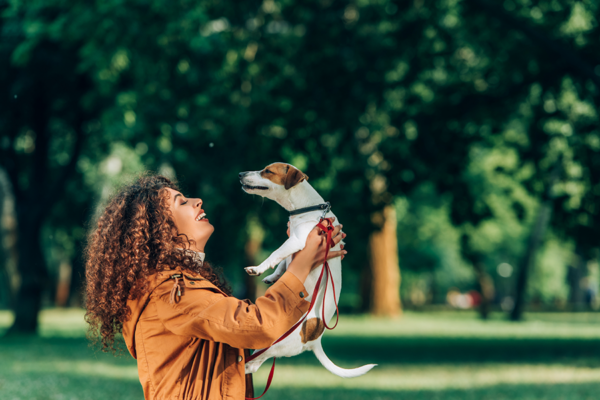
Building a bond with your dog is a continuous endeavor filled with play and fun. Activities that captivate both can strengthen this bond, making the training phase more enjoyable. Rewarding good behavior with treats or praise further solidifies this connection.
Embracing Your Role as the Owner During Training
In the lesson course, your role as the owner is central. Your patience, understanding, and familiarity with diverse training methods considerably influence the training’s success. Are you ready to train your dog in problem-solving? Gain access to expert advice by reaching out through our contact form.
Behavioral Analysis: Understanding and Addressing Underlying Causes
To kickstart effective problem-solving training, owners must pinpoint the triggers and underlying causes of their dog’s problematic behavior. Observing when and where problems like excessive noise can guide a successful training course. These insights pave the way to correcting these issues and cultivating a harmonious bond.
Leveraging Problem-Solving Techniques for Behavioral Analysis
Owners can employ problem-solving techniques to analyze better and comprehend their dog’s behaviors. Seeking assistance from experts like The Dog Wizard to create personalized training programs can be beneficial. Owners can foster a happier and healthier connection with their animals by focusing on specific areas and applying targeted solutions.
Training Approaches: Encouraging Positive Behavior
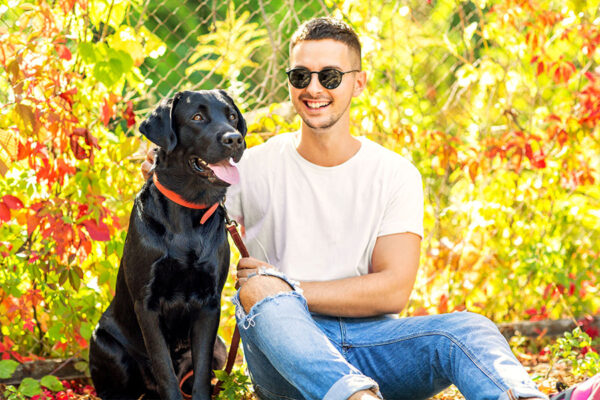
Positive reinforcement training is a vital tool in fostering good behavior in dogs. This approach emphasizes rewarding the dog for positive behavior, encouraging them to repeat it. This method has proven to be an easy way to address several behavioral issues successfully.
Using Treats Effectively in Training
Treats in training are a popular method to encourage dogs to behave well. Here’s how to use treats effectively in training:
- Positive Association: Utilize treats to create a positive association with desired actions.
- Balanced Approach: Maintain a balanced approach to avoid potential food aggression or over-dependence on treats.
- Choosing the Right Treats: Select treats suitable for your dog’s age, size, and dietary needs.
- Timing is Key: Offer treats at the right time to reinforce positive behavior effectively.
Encouraging Good Behavior Through Praise and Rewards
Giving praise and rewards when they display good behavior is key. This positive feedback encourages them to repeat these actions, fostering a loving and respectful bond. Rewards can range from verbal praise to a favorite toy, keeping the training sessions engaging and enjoyable.
Habituation and Conditioning: The Foundations of a Happy Canine
Understanding habituation is essential in problem-solving lessons. This process involves accustoming the dog to certain stimuli or situations where it no longer triggers a reaction, a fundamental aspect of conditioning a dog to display desirable behavior.
Introduction to Classical and Operant Conditioning
Comprehending and utilizing the principles of classical and operant conditioning are fundamental in dog lessons. These strategies form the basis of a rewarding problem-solving regimen, fostering the development of good habits and the elimination of undesirable ones.
Paving the Path to a Joyful Canine Companion
Embarking on a problem-solving journey with The Dog Wizard guarantees an enjoyable, educational, and bonding experience. Our expertise in handling different breeds and temperament types makes us your ideal partner in molding a well-mannered and joyful canine companion.
Embark on Your Dog’s Journey to Excellence with The Dog Wizard
Ready to forge a delightful, fulfilling, and joyful bond with your furry companion? Your search ends here! Join The Dog Wizard today for a revolutionary journey in problem-solving training.







